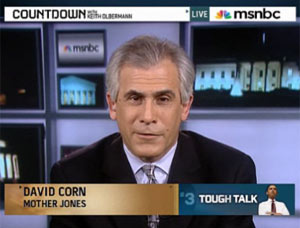On Monday the Supreme Court will hear arguments about the constitutionality of the individual mandate in Obamacare. David Bernstein argues that the key issue is what’s become known as the “broccoli test”:
As I’ve argued several times before, the Supreme Court’s conservative majority will not uphold the individual mandate if the mandate’s defenders are unable to come up with a limiting principle that will prevent a decision upholding the law from eviscerating any remaining limits on Congress’s power to regulate interstate commerce.
…In the health care area, can Congress in fact require everyone to eat broccoli?….Maybe it’s a good idea to give Congress the power to regulate
whatever and however it wants, though I really doubt it. More to the point, I’m quite sure that the conservative majority is not willing to endorse the proposition that the commerce power is really the Congress-Can-Do-Whatever-it-Wants Power.
I’m not a lawyer, but I think the widespread focus on Congress’s interstate commerce power is off base. Properly framed, the broccoli question is not really a hard one to answer. Here’s what I think is the basic four-step legal justification for the individual mandate:
- The healthcare sector in America is part of interstate commerce. This is beyond dispute.
- Congress can regulate the healthcare sector. This follows directly from both the Constitution and many decades of actual practice. This is also beyond dispute.
- Broadly speaking, Obamacare is a reasonable effort to regulate the healthcare market. Regardless of whether they personally like the approach Congress took, I don’t think it’s hard to convince even conservative justices that the overall structure of Obamacare, with its mix of public and private delivery, is a proper exercise of Congress’s authority over a large and complex segment of interstate commerce.
- The individual mandate is necessary to the proper functioning of Obamacare. Without the mandate, the entire structure of Obamacare fails. This is fairly easy to demonstrate.
The biggest point of contention is #4, and that has nothing to do with the interstate commerce clause. It has to do with the “necessary and proper” clause—and that’s a very expansive grant of power. In McCullough v. Maryland, Chief Justice John Marshall wrote: “Let the end be legitimate, let it be within the scope of the constitution, and all means which are appropriate, which are plainly adapted to that end, which are not prohibited, but consist with the letter and spirit of the constitution, are constitutional.” The individual mandate may not be the only way to accomplish Congress’ goals, but I think the facts of the case provide an extremely strong basis for concluding that it’s both “appropriate” and “plainly adapted” to those goals.
So then, what’s the limiting rule? Why can’t Congress mandate that we all eat broccoli? Answer: because it’s not necessary to the proper functioning of any plausibly reasonable healthcare regulatory structure. Congress may have the power to intrude on individual liberty, but it can’t exercise that power arbitrarily. It has to be appropriate and plainly adapted to a legitimate broader goal. The individual mandate is. Forcing you to eat your broccoli isn’t.
This strikes me, frankly, as a pretty slam dunk legal case. The only question, then, is whether the Supreme Court will treat it as a proper legal question rather than an overtly political one in which they simply express their disapproval of Obamacare or try to cement their reputations on the right by rolling back decades of well-accepted jurisprudence. I realize that this is an act of obvious foolhardiness, but this is why I’m sticking with my prediction that Obamacare and the mandate will be upheld 7-2. I think that Thomas and Alito are true believers who are perfectly willing to overturn two centuries of precedent just to satisfy their own ideological fancies. But I have more respect for Roberts, Kennedy, and Scalia. I think they’ll judge the law on its proper legal merits, and conclude that Obamacare is broadly reasonable and the individual mandate is indeed a necessary and proper part of it.

















